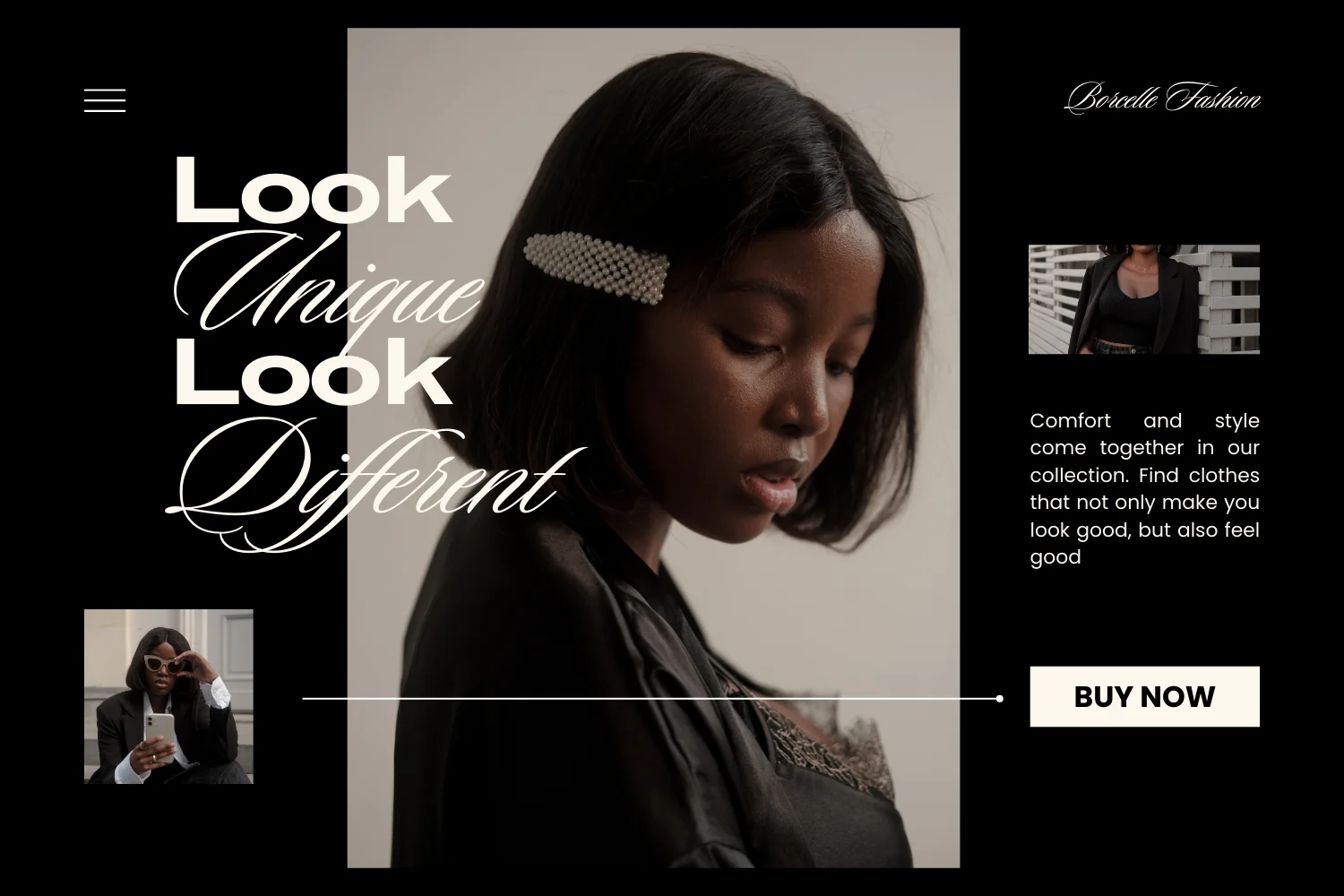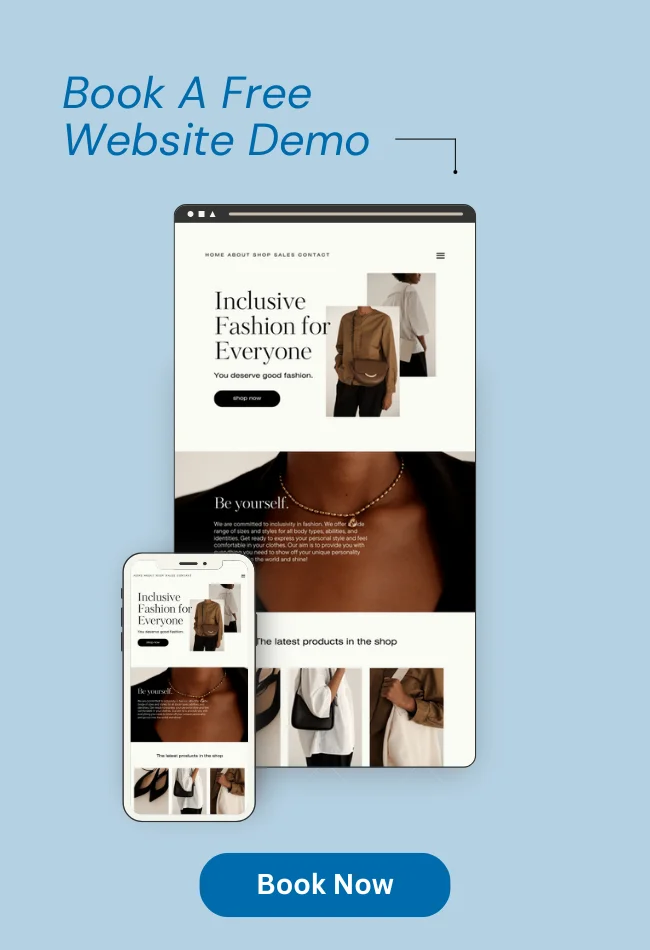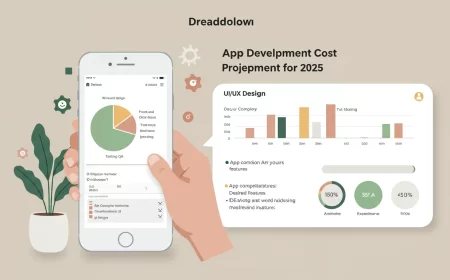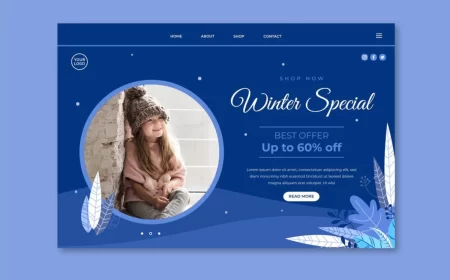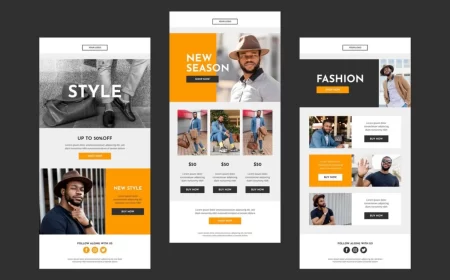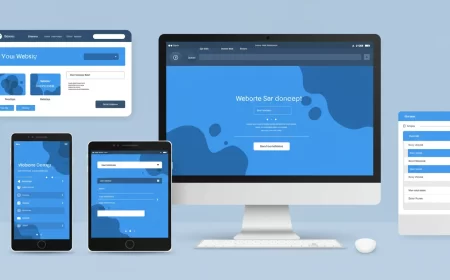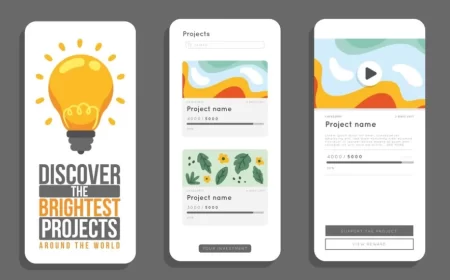In the competitive world of acting, talent and hard work are paramount, but a powerful online presence is increasingly becoming the non-negotiable stage upon which careers are built and opportunities are seized. An actor website is more than just a digital resume; it’s a dynamic portfolio, a personal brand statement, and a crucial tool for connecting with casting directors, agents, producers, and fans. It’s where your unique essence, versatility, and professional dedication truly shine.
This comprehensive guide will illuminate the path to creating an impactful actor website. We’ll explore why a strong online platform is indispensable for every aspiring and established performer, delve into the essential features that capture attention, offer strategic content ideas to showcase your range, and outline best practices for design and usability. Whether you’re just starting out or looking to elevate your professional profile, understanding how to craft a compelling actor website is key to putting yourself in the spotlight.
Why Every Actor Needs a Powerful Website
In an industry driven by visuals, connections, and immediate access to information, a dedicated website offers unparalleled advantages for actors:
- Professionalism & Credibility: A well-designed website signals seriousness and dedication, establishing you as a professional ready for serious work. It’s your digital business card.
- Centralized Portfolio: Consolidate all your essential materials—headshots, reels, voiceovers, resume, contact info—in one easily accessible place, saving casting directors time and effort.
- Showcasing Versatility: Go beyond a simple resume. A website allows you to curate different looks, highlight diverse roles, and demonstrate your range as a performer in a visually compelling way.
- Personal Branding: Define and communicate your unique selling proposition. What makes you stand out? Your website is the perfect canvas to convey your personality and artistic identity.
- 24/7 Availability: Casting directors and agents work around the clock. Your website is always available, allowing opportunities to find you anytime, anywhere.
- Direct Contact & Networking: Provide clear ways for industry professionals to reach you or your representation, streamlining communication and fostering connections.
- Beyond the Audition Room: A website allows you to share news, upcoming projects, and personal insights, keeping your network updated and engaged even when you’re not actively auditioning.
- SEO & Discoverability: Optimize your site so that when casting directors search for specific types of actors, your profile appears prominently.
Key Features of an Effective Actor Website
A compelling actor website is a strategic blend of visual impact, essential information, and ease of navigation. Here are the must-have features:
- Professional Headshots & Photography Gallery:
- High-Resolution Images: Showcase a variety of professional headshots (commercial, theatrical, character shots) and full-body shots.
- Organized Gallery: Categorize photos by “looks” or roles to demonstrate versatility.
- Clear Labeling: Ensure images are high-quality and load quickly.
- Demo Reels & Video Content:
- Prominent Placement: Your primary demo reel should be easily found on the homepage or a dedicated “Reels” page.
- Segmented Reels: If you have extensive work, consider separate reels for comedy, drama, commercial, voiceover, etc.
- High Quality & Optimized: Ensure videos load quickly and are of professional quality. Embed from platforms like Vimeo or YouTube.
- Acting Resume (Downloadable PDF):
- Clean & Up-to-Date: A professional, easy-to-read resume listing your credits (film, TV, theater, commercial, voiceover), training, special skills, and representation.
- Downloadable Format: Provide a clear link to download your resume as a PDF for easy saving and printing.
- Web Version: Also present a concise web-friendly version directly on the page.
- Voiceover Demos (if applicable):
- Audio Player: Embed clear audio samples of your voiceover work (commercial, narration, animation, audiobook).
- Variety: Showcase different vocal ranges, tones, and character voices.
- Inspiration: See examples on professional voice actor sites or platforms like Voice123.
- Contact Information & Representation:
- Clear & Accessible: Prominently display your agent/manager’s contact information (name, agency, phone, email).
- Direct Contact Form: For general inquiries or fan mail (if desired), a simple contact form is useful.
- Social Media Links: Link to professional social media profiles (e.g., Instagram, Twitter, LinkedIn).
- “About Me” / Biography:
- Engaging Narrative: A concise, compelling bio that highlights your journey, passion for acting, unique qualities, and any relevant personal details that add character.
- Third-Person Perspective: Typically written in the third person.
- News & Updates / Blog (Optional but Recommended):
- Latest Projects: Share news about recent bookings, upcoming performances, or film festival selections.
- Behind-the-Scenes: Offer glimpses into your process or experiences on set (within confidentiality agreements).
- Personal Insights: Share thoughts on acting, industry trends, or creative inspiration.
- Training & Skills:
- Detailed Training: List acting schools, workshops, coaches, and specific techniques mastered.
- Special Skills: Highlight unique abilities (e.g., stage combat, musical instruments, languages, dialects, sports, dance). Be specific and honest!
- Mobile Responsiveness:
- Crucial: Casting directors and agents are often on the go. Your website must adapt and look flawless on all devices (smartphones, tablets, desktops).
- Search Engine Optimization (SEO):
- Keywords: Optimize for your name, “actor,” “actress,” “voice actor,” “[your city/region] actor,” and specific character types you often play.
- Fast Loading Times: Ensure your site loads quickly, especially for video content.
- Secure (HTTPS): A basic requirement for credibility and SEO.
Content Ideas for Your Actor Website
Beyond the essential features, thoughtful content can truly elevate your website:
- Character Gallery: Beyond headshots, include photos or descriptions of specific characters you’ve played, demonstrating your transformative abilities.
- Press & Media: Any articles, interviews, or reviews featuring your work.
- Production Stills: High-quality still images from films, TV shows, or theater productions.
- Behind-the-Scenes Photos: Glimpses of life on set or backstage (ensure you have permission and don’t violate NDAs).
- Vocal Range Samples: For singers, short audio clips demonstrating different styles or ranges.
- Personal Statement/Artist’s Philosophy: A more in-depth reflection on your approach to acting.
- Location Information: Clearly state your primary working locations and if you’re willing to travel.
- Union Affiliations: (e.g., SAG-AFTRA, Equity) if applicable.
- Testimonials from Directors/Coaches: Short endorsements from industry professionals who have worked with you.
Best Practices for Design & Usability
Your website’s design should reflect your professionalism and artistic sensibility, while remaining easy to navigate.
- Clean & Professional Aesthetic: Avoid cluttered designs. Focus on clean layouts, ample white space, and a sophisticated color palette that doesn’t distract from your visuals.
- High-Quality Visuals are Paramount: This cannot be stressed enough. Invest in professional headshots and a well-edited demo reel. Blurry photos or choppy videos will detract from your credibility.
- Intuitive Navigation: Make it incredibly easy for visitors to find your reel, headshots, and resume. Use clear, concise menu labels (e.g., “Reels,” “Photos,” “Resume,” “Contact”).
- Fast Loading Times: Optimize all images and videos for web. Casting directors have limited time and will quickly leave a slow-loading site.
- Mobile-First Design: Ensure your site looks and functions perfectly on smartphones and tablets, as many industry professionals will view your site on mobile devices.
- Consistent Branding: Your website’s look and feel should align with your headshots, resume, and overall professional image.
- Clear Calls-to-Action: Guide visitors with subtle but clear prompts, such as “Watch Demo Reel,” “View Full Resume,” or “Contact Agent.”
- Keep it Updated: A stale website suggests a stagnant career. Regularly update your credits, photos, and news.
- Simplicity Over Flashiness: While creativity is good, prioritize clarity and ease of access over overly complex animations or distracting effects. The focus should be on you.
Platforms for Building an Actor Website
Several platforms cater to different levels of technical expertise and budget.
- Dedicated Actor Website Platforms:
- Actors Access: While primarily a casting submission platform, it offers profile pages that act as basic websites.
- IMDbPro: Professional profiles on IMDb can serve as a primary online presence, though less customizable than a dedicated website.
- Casting Networks: Similar to Actors Access, provides online profiles that can function as a basic web presence.
- Backstage: Offers profiles and tools for actors, including website builders as part of their subscriptions.
- General Website Builders (Recommended for Customization):
- Wix: Offers a user-friendly drag-and-drop interface, many professional templates (including some for artists/performers), and good multimedia integration. You can start with a free plan (with Wix branding) and upgrade later.
- Squarespace: Known for its beautiful, design-forward templates and strong visual presentation capabilities, ideal for showcasing photos and videos. Offers a clean, minimalist aesthetic.
- WordPress.com: A good option if you want blogging capabilities and more control. Can be slightly steeper learning curve than Wix/Squarespace but highly flexible.
- Weebly: Another easy-to-use drag-and-drop builder, suitable for creating straightforward, professional websites.
- Portfolio-Specific Platforms:
- Adobe Portfolio: Free with an Adobe Creative Cloud subscription, excellent for creating professional-looking visual portfolios with clean layouts.
- Behance: While primarily for visual artists, it can be used to showcase character looks or production stills effectively.
Conceptual Examples of Effective Actor Websites
Here are 30 conceptual examples illustrating different approaches and features you’d find on leading actor websites:
Focus on Visual Impact & Performance
- The “Cinematic Intro” Site: A homepage featuring a full-width, auto-playing (muted) background video of your best demo reel moments, immediately grabbing attention. Navigation is overlaid cleanly.
- Inspiration: Many modern portfolio sites use this effect. See Wix’s video background templates.
- The “Headshot Carousel” Gallery: A dynamic, full-screen carousel on the photo page that cycles through your diverse headshots with subtle transitions, allowing quick browsing of your range.
- Inspiration: Image sliders on photography portfolio sites. For a practical example, consider how Unsplash showcases large, high-quality images in a browsable format.
- The “Role-Specific Reel Segments” Page: Instead of one long reel, this page offers short, labeled clips (e.g., “Dramatic Scene,” “Comedic Beat,” “Commercial Spot”) allowing casting directors to jump to relevant content.
- Inspiration: Professional demo reel editing services often suggest this segmentation. See how Reelcraft discusses different reel types.
- The “Voiceover Character Library”: An audio player with clearly labeled tracks for different voiceover characters or styles (e.g., “Warm Narrator,” “Animated Villain,” “Youthful Commercial”).
- Inspiration: Professional voice actor websites like those found on Voice123. For a specific example, listen to various demos on Dee Bradley Baker’s official site.
- The “Behind-the-Scenes Story” Blog: A blog section featuring high-quality production stills and short anecdotes from set, offering a glimpse into your professional life (respecting NDAs).
- Inspiration: Actor blogs or industry news sites. For a general idea of behind-the-scenes content, check out Film School Rejects’ “Behind the Scenes” section.
Emphasis on Professionalism & Information
- The “One-Page Powerhouse” Site: A concise, single-page website with anchor links for quick navigation to your most essential elements: Reel, Photos, Resume, Contact. Ideal for quick consumption.
- Inspiration: Many one-page website templates on various builders. For a clean, professional example, consider a well-structured personal portfolio like Tobias van Schneider’s site.
- The “Downloadable Resume First” Approach: The homepage prominently features a large, clear button to download your PDF resume, catering to busy casting directors who want quick access.
- Inspiration: Professional resume sites or LinkedIn profiles. For a clean resume design, check out templates on Canva.
- The “Representation Spotlight” Page: A dedicated page with your agent/manager’s photo, a brief bio of their agency, and all contact details, making it easy for direct industry communication.
- Inspiration: Agency websites themselves. For example, see the “About Us” or “Contact” sections of major talent agencies like Creative Artists Agency (CAA).
- The “Training & Skills Matrix”: A well-organized, easy-to-scan section detailing your acting training (schools, coaches, methods) and a comprehensive list of special skills with proficiency levels.
- Inspiration: Structured data presentation in professional profiles. For a visual example of skill matrices, look at project management skill matrices that organize abilities.
- The “Union Affiliation & Location” Bar: A subtle but clear bar at the top or bottom of the page stating your union status (e.g., “SAG-AFTRA Eligible”) and primary working locations.
- Inspiration: Standard professional actor profiles. Many professional actors list this on their IMDbPro pages.
Character & Versatility Showcase
- The “Character Archetype” Gallery: Organize your headshots and stills into categories like “Leading Man/Woman,” “Comedic Relief,” “Gritty Detective,” showing your range for specific roles.
- Inspiration: Character breakdowns in casting calls. For a general understanding of archetypes, see The 12 Common Archetypes by Carl Jung.
- The “Before & After” Transformation Series: For actors known for dramatic transformations, a dedicated section showing your ability to embody vastly different characters through makeup, costume, and acting choices.
- Inspiration: Makeup artist portfolios or character actor profiles. For an example of visual transformations, see “before & after” in special effects makeup portfolios.
- The “Accent & Dialect Library”: An audio player with short samples of various accents and dialects you can perform, clearly labeled.
- Inspiration: Professional dialect coaches’ websites. For a list of common accents and resources, check out The International Dialects of English Archive (IDEA).
- The “Physical Skills Reel”: A short reel specifically showcasing physical abilities like stage combat, dance, martial arts, or specific sports.
- Inspiration: Stunt performer reels or dancer portfolios. See examples of stunt reels on YouTube.
- The “Musical Theatre Medley” (for singers): A compilation video or audio track showcasing your vocal range and performance in different musical theatre styles.
- Inspiration: Musical theatre performer websites or audition reels. For examples of vocal range demonstrations, search for “vocal range exercises” on YouTube.
News & Engagement Focused
- The “Latest Bookings” Marquee: A prominent, easily updatable section on the homepage announcing your most recent acting credits or projects.
- Inspiration: News tickers on media websites. For a general idea of news updates, see Variety’s “Latest News” section.
- The “Upcoming Performances/Screenings” Calendar: An embedded calendar showing dates and locations of your theater performances, film screenings, or festival appearances.
- Inspiration: Event calendars on theater company websites. Consider embedding a Google Calendar.
- The “Press & Reviews” Archive: A collection of links to articles, interviews, or reviews where your work has been featured or critically acclaimed.
- Inspiration: Media kits or press sections on artist websites. For a well-organized press page, see a general press kit example.
- The “Actor’s Journal” Blog: A personal blog where you share insights into your acting process, challenges, triumphs, or thoughts on the industry.
- Inspiration: Personal blogs of writers or artists. For example, a blog on Medium can serve as inspiration for personal reflections.
- The “Fan Q&A” Section: A dedicated page where you answer frequently asked questions from fans, building engagement and community.
- Inspiration: Q&A sections on celebrity or public figure websites. For a general Q&A format, see Reddit’s “Ask Me Anything” (AMA) section.
Design & User Experience Focused
- The “Minimalist & Elegant” Design: A clean, black-and-white or muted color palette with strong typography, letting your headshots and reel be the sole focus.
- Inspiration: High-end fashion or photography portfolios. For a clean aesthetic, explore templates on Squarespace.
- The “Interactive Resume” with Pop-ups: A web-based resume where clicking on a credit brings up a small pop-up with a production still or a short clip from that role.
- Inspiration: Interactive infographics or online resumes with rich media. For interactive elements, consider tools like Ceros.
- The “Scroll-Triggered Portfolio”: As users scroll down, different sections (Reel, Photos, Resume) smoothly animate into view, creating a dynamic browsing experience.
- Inspiration: Modern single-page websites with parallax scrolling. See examples on Awwwards.
- The “Mobile-First Optimization”: The website is meticulously designed to provide an exceptional experience on smartphones, with large tap targets, optimized video, and easy-to-read text.
- Inspiration: Any well-designed modern mobile website. Test responsiveness with Google’s Mobile-Friendly Test.
- The “Accessibility-Focused” Site: Ensures high contrast, keyboard navigation, and alt text for all images, making the site usable for actors and casting directors with disabilities.
- Inspiration: Websites adhering to WCAG (Web Content Accessibility Guidelines). Use tools like WebAIM WAVE for auditing.
Unique & Creative Concepts
- The “Character Monologue Library”: A collection of short, self-taped monologues showcasing your ability to embody different characters, categorized by genre or archetype.
- Inspiration: Audition resource sites. For monologue examples, visit Monologue Blogger.
- The “Industry Resource Hub”: A small section dedicated to sharing helpful links for aspiring actors (e.g., acting schools, industry news sites, union resources).
- Inspiration: Educational resource pages. For industry news, check out Deadline Hollywood.
- The “My Acting Journey” Timeline: An interactive timeline charting your career milestones, from early training to recent projects, providing a narrative of your growth.
- Inspiration: Interactive timelines on historical or biographical websites. Tools like TimelineJS can create these.
- The “Why I Act” Personal Statement: A heartfelt, short video or written piece on your homepage explaining your passion and motivation for acting, connecting with visitors on an emotional level.
- Inspiration: Artist statements or personal mission statements. For examples of personal storytelling, see The Moth.
- The “Virtual Audition Room” (Concept): A password-protected section where casting directors can access custom-recorded audition sides specifically for a role they are casting, offering a highly personalized experience.
- Inspiration: Private client portals or secure file-sharing services. For secure file sharing, consider Dropbox Professional.
Conclusion
A meticulously crafted actor website is an indispensable tool in today’s competitive entertainment industry. It serves as your digital stage, allowing you to professionally showcase your talent, versatility, and unique brand to a global audience of casting directors, agents, and collaborators. By prioritizing high-quality visuals, clear navigation, comprehensive content, and a professional aesthetic, you can create a powerful online presence that not only opens doors to new opportunities but also solidifies your reputation as a serious and dedicated performer. Invest in your online spotlight, and let your talent shine through.
Frequently Asked Questions (FAQs)
Q1: What is the single most important element for an actor’s website?
The single most important element is a high-quality, easily accessible demo reel. Casting directors often have limited time, and your reel is the fastest way for them to see your acting abilities and range. It should be prominently displayed on your homepage.
Q2: Do I need professional headshots for my website?
Absolutely yes. Professional, high-resolution headshots are non-negotiable. They are your primary visual marketing tool and convey your professionalism and versatility. Include a variety of looks (theatrical, commercial, character) to showcase your range.
Q3: Should I include my full resume on my website?
Yes, you should. Provide a clean, web-friendly version directly on a dedicated “Resume” page, and also offer a clear link to download your resume as a PDF. This caters to different preferences of industry professionals.
Q4: How often should I update my actor website?
You should update your website immediately after any new booking, training, or significant career milestone. Keep your resume, reel, and photos current. A stale website can suggest a stagnant career.
Q5: Can I build an actor website for free?
Yes, you can start with free website builders like Wix or Weebly, though they will typically include their branding and a subdomain (e.g., yourname.wixsite.com). For a more professional look, investing in a custom domain and a paid plan is highly recommended.
Q6: What’s the best way to showcase my video content (demo reels, self-tapes)?
Embed your videos from professional platforms like Vimeo or YouTube. These platforms handle hosting, streaming, and provide reliable embed codes. Ensure your videos are optimized for fast loading and high quality.
Q7: Should I include personal information on my actor website?
Keep personal information professional and relevant to your acting career. Avoid sharing overly personal details. Focus on your passion for acting, relevant skills, and any unique qualities that contribute to your casting type. Always prioritize safety and privacy.

